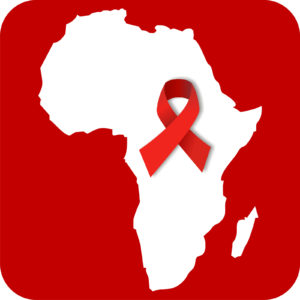When many people hear the phrase “foreign aid,” they think of the United States funding directed toward humanitarian challenges worldwide — health, education, hunger, for example. In recent years, it has bred a skepticism about its value, especially when the United States still struggles to fully address these issues domestically.
But that point of view misses the broader ramifications of the importance of foreign aid as a useful and important tool in American security. Aid that addresses both humanitarian crises as well as security is something we should all care about and support.
The United States’ involvement in President’s Emergency Plan for AIDS Relief (PEPFAR) and in fighting diseases like Ebola demonstrates that what happens in Africa has an effect here at home. At the same time, funding for foreign aid has been spent responsibly and has demonstrable results to show for it.
As President George W. Bush noted in an interview with The Catalyst, the United States was confronted with the reality of the devastation of AIDS on the African continent when he came into office. Whole families were falling victim to an epidemic that left parents too sick to care for their kids, and children orphaned. Communities were devastated, and hospitals and clinics were overwhelmed.
The number of lives affected was staggering. At the time, more than 30 million people in sub-Saharan Africa were living with HIV, but only 50,000 were receiving the drugs they needed.
Now, because of PEPFAR, nearly 12 million people are on antiretroviral treatment, and 2 million babies have been born HIV-free to infected mothers. Millions more have received testing and counseling through PEPFAR to prevent new infections.
PEPFAR’s success in partnership with national governments has resulted in the surge toward control of the HIV epidemic. And this progress is being made responsibly. PEPFAR is proof that the U.S. government can run a highly effective, results-oriented program that puts taxpayer dollars to work where the return on investment is lives saved.
In this political environment, that’s an important point to keep in mind. Data are being strategically used to drive decision-making and to ensure that resources flow to the sites where the burden of HIV is highest and can have the most effect. This approach shows we can be compassionate and conservative at the same time.
In addition to lives saved, investments in foreign aid abroad benefit Americans at home. When the United States acts with compassion, the world responds favorably. U.S. investments in foreign aid build friendly relations and goodwill, strengthening diplomatic ties.
Early this year, more than 120 former military leaders weighed in with Congress to express their views on why foreign aid is critical to U.S. national security. They know that diplomacy and development are crucial to preventing conflict and reducing the need to put members of the military on the battlefield. Then in June, 16 former generals provided testimony to Congress that said, “It is clear to us that strategic development assistance is not charity — it is an essential, modern tool of U.S. national security.”
One thing these military leaders know is that terrorism can be fought preemptively through foreign assistance. Every orphan that was abandoned due to his or her parents dying of AIDS was a target for extremist recruiters, who would come in and provide a family for these children.
That’s why efforts like PEPFAR, while seeming to be only altruistic, also have an important effect on our own national security. According to the World Bank, since 2004, PEPFAR countries in sub-Saharan Africa reduced political instability and violent activity by 40 percent, compared with only 3 percent among non-PEPFAR countries in the region.
This doesn’t just affect orphans who are affected by AIDS; young people across Africa are more apt to turn to extremism when unemployment is high and poverty is profuse.
We know that when people are healthy, they are able to work. When they work, they have more resources to ensure their continued health, send their children to school, and contribute to the country’s growing economy. We know that in particular, healthy women strengthen families, communities and nations, driving global economic growth and prosperity.
There is no doubt that the generosity of the American people has been transformational and necessary in reversing the HIV/AIDS crisis in sub-Saharan Africa, and ending investments prematurely puts this progress at risk. We must continue to fund PEPFAR to ensure it has the resources to scale the program and prevent new infections in at-risk populations, especially youth.
Because of gains in global health, the population of youth aged 15 to 24 is expected to double by 2020 from what it was at the beginning of the AIDS epidemic. This group is at particular risk for HIV infection, especially young women. If we do not continue to equip young people to protect themselves from infection, our success could be reversed in a heartbeat.
Continued investments in global health, economic growth and increased trade with Africa are vital. What happens overseas matters more than ever here in the United States, especially to our security and stability.

